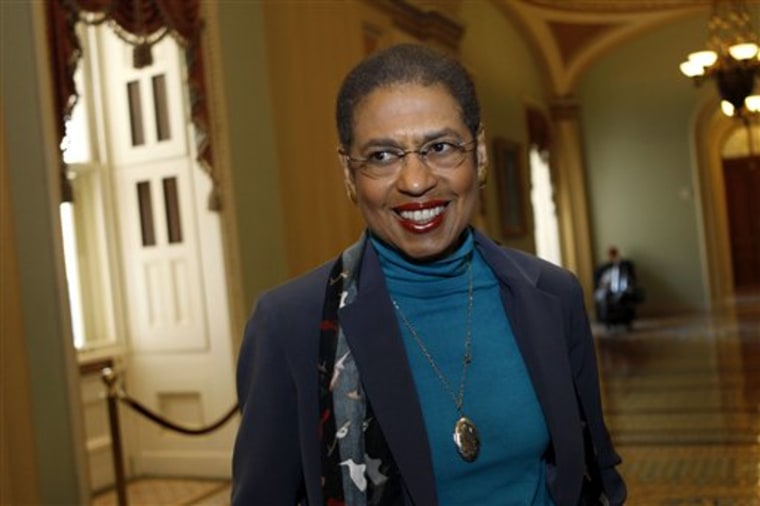The right to a vote in Congress denied the District of Columbia when it became the nation's capital two centuries ago would be granted under legislation the Senate passed Thursday.
Congress is "moving to right a centuries-old wrong," said Senate Majority Leader Harry Reid shortly before the 61-37 vote.
The House is expected to pass the measure with a strong majority next week and President Barack Obama, a co-sponsor when the bill failed to clear the Senate two years ago, has promised to sign it.
Court challenge is likely
The measure is likely to face a court challenge immediately after becoming law; opponents argue that it is unconstitutional because D.C. is not a state and does not qualify for representation.
Sen. Joe Lieberman, a Connecticut independent, who sponsored the bill with Sen. Orrin Hatch, R-Utah, expressed confidence that they could win the legal argument and noted that the bill contained an expedited appeals process to ensure a quick court decision.
The real issue, he said, is that the disenfranchisement of 600,000 residents of the nation's capital "is patently unjust and un-American in a sense of the best principles of this country."
"This is a historic moment," said Ilir Zherka, head of the advocacy group DC Vote. "In 2007 we were gaining tremendous momentum," he said. "The huge difference this year is that we have an advocate in the White House."
Two years ago, with Democrats holding a smaller majority in the Senate and then-President George W. Bush threatening a veto on constitutional grounds, the Senate fell three votes short of overcoming a GOP-led filibuster.
Under the rules of debate Thursday, supporters needed 60 votes to win passage. Six Republicans voted for the measure while two Democrats opposed it.
Utah gets fourth district
Utah's Hatch was a co-sponsor in part because the legislation, to offset the certain Democratic gain from D.C., adds a fourth district to Republican-leaning Utah. That would increase House voting membership by two, to 437.
The two representatives would be seated at the start of the next session in January 2011. Utah's maintaining that fourth seat would depend on the outcome of the 2010 census. Utah barely missed out on picking up an extra seat after the 2000 census.
The final Senate vote came after supporters turned back a constitutional challenge and another amendment that would have effectively returned the nonfederal areas of the district to Maryland.
Senators did approve, 62-36, a controversial amendment pushed by pro-gun advocates that overturns most of the district's tough gun control laws. That provision would still have to be approved when the House and Senate meet to reconcile differences in their bills.
Opponents of the legislation pointed to Article I, Section 2 of the Constitution, which says members of the House should be chosen "by the people of the several states."
Constitutional questions
The Constitution is clear, said Senate Republican leader Mitch McConnell of Kentucky, that "only states elect members of Congress. And according to the same article, the seat of the federal government is not to be considered a state."
Congress in 1978 did approve a constitutional amendment giving the district a full voice in Congress, but it was unable to win ratification of three-fourths of state legislatures.
Those on the other side cited Article I, Section 8, which empowers Congress to "exercise exclusive legislation in all cases whatsoever" over the district chosen to be the national capital. Constitutional scholars, they say, agree that gives Congress the right to give the district a vote. They add that D.C. residents pay federal taxes and serve in the military and that the courts have long considered the district equivalent to a state in matters such as interstate commerce, taxation and criminal matters.
D.C. residents have had the right to vote in presidential elections since the 23rd Amendment was ratified in 1961.
